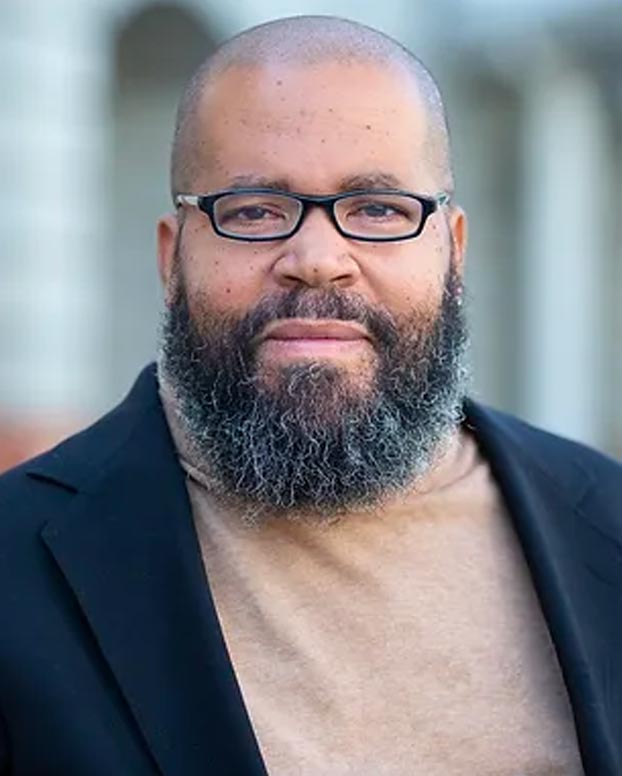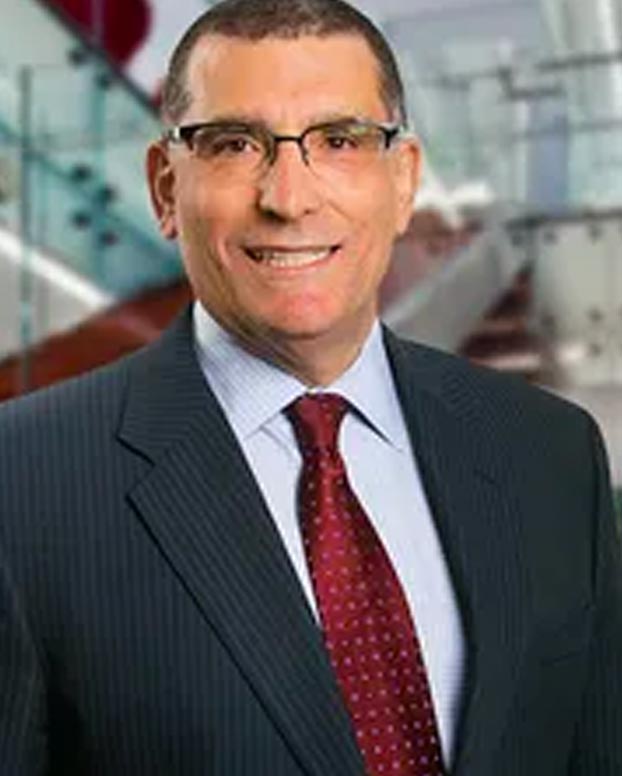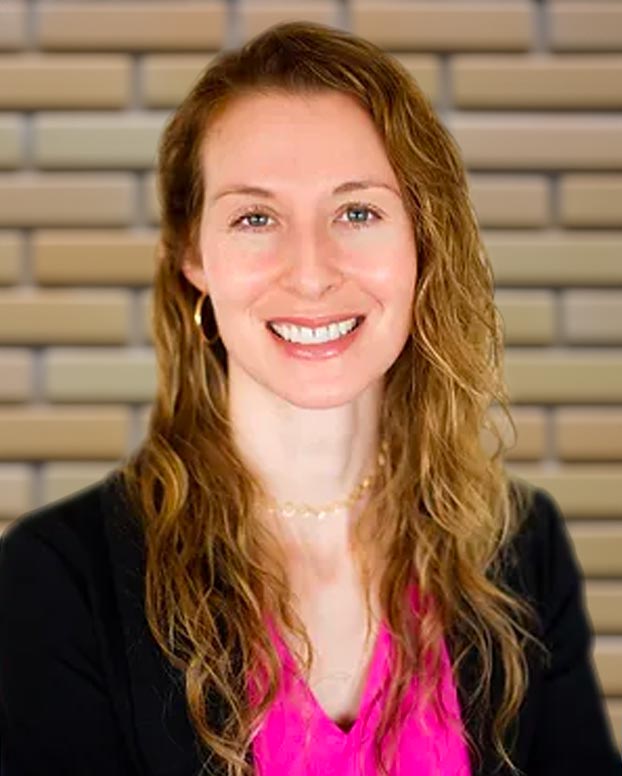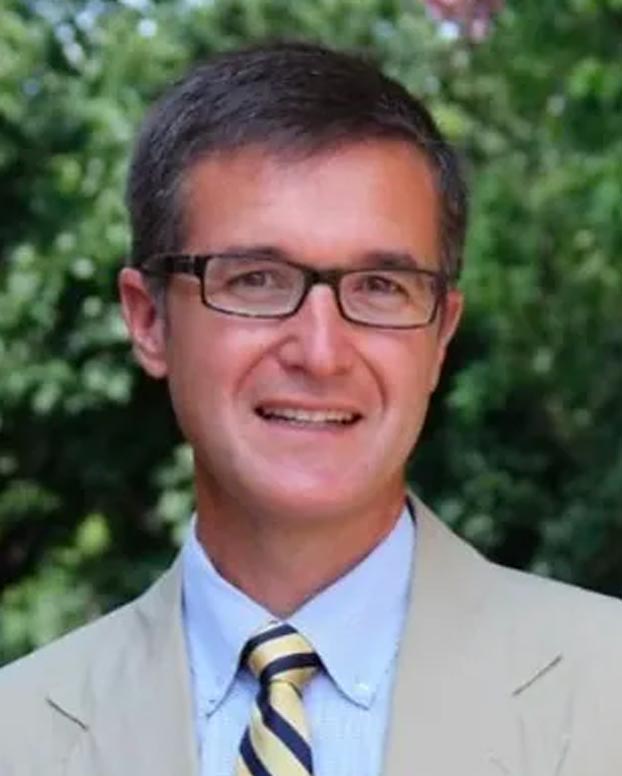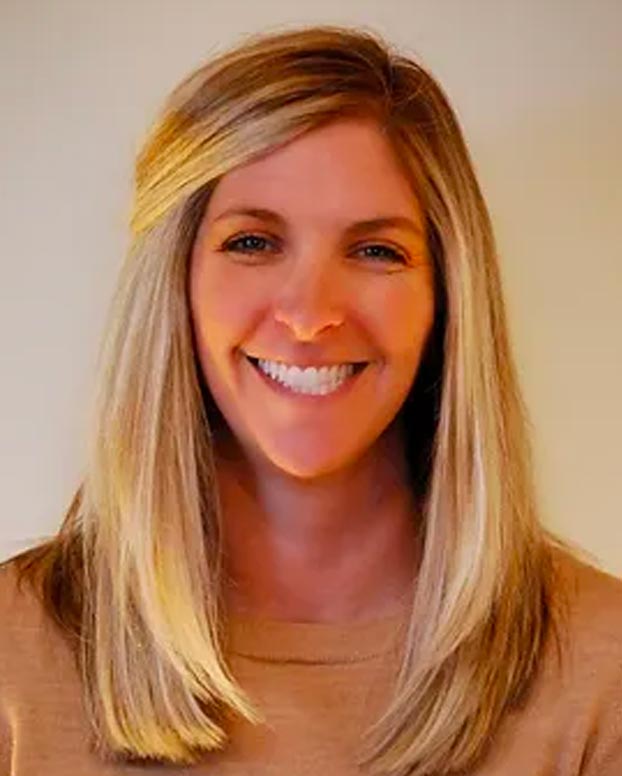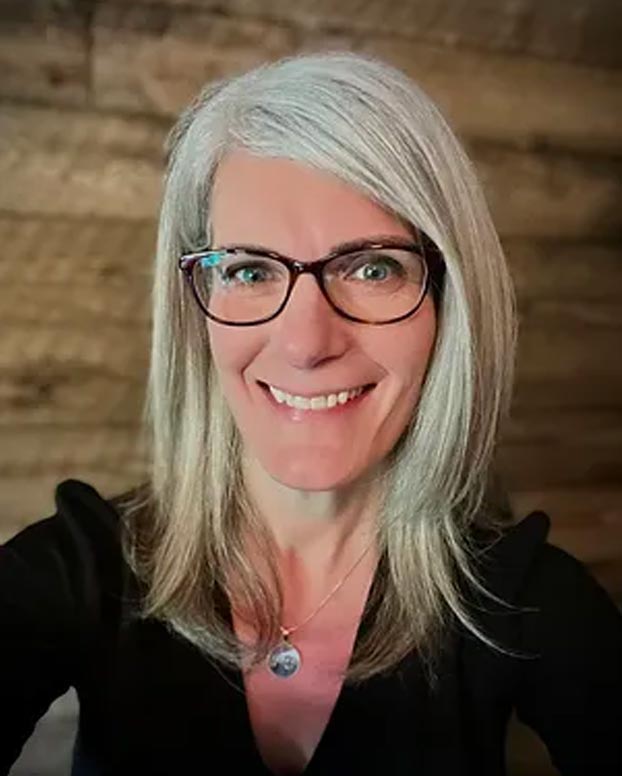Women in Disability Advocacy: Georgia Edson, Executive Director of The Arc of Arapahoe, Douglas, and Elbert Counties
March 18, 2025
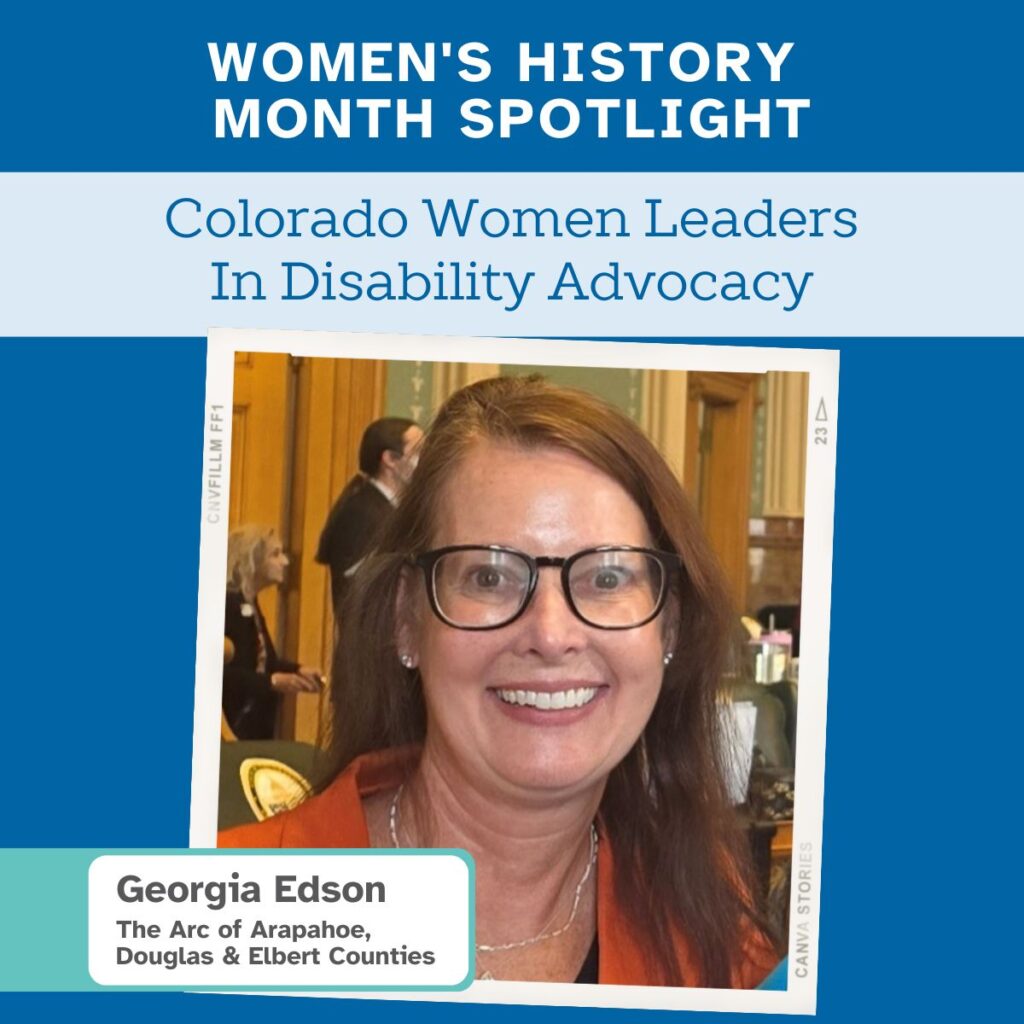
RMHS had the pleasure of speaking with Georgia Edson, Executive Director of The Arc of Arapahoe, Douglas & Elbert Counties, about her lifelong commitment to disability advocacy.
From transitioning individuals out of institutions to championing inclusion and self-determination, Georgia has dedicated her career to ensuring people with disabilities have the rights, respect, and opportunities they deserve. In our Q&A, she reflects on the women who have influenced her and the lessons she’s learned as a leader.
She also shares the most important advice she would give to someone interested in getting involved with advocacy: listen to, learn from, and amplify the voices of people with disabilities. They know best what they need. Read on for our full conversation.
Tell us about your career journey, especially as it relates to becoming involved in disability advocacy.
Straight out of graduate school, I embarked on a career dedicated to supporting and advocating for people with disabilities. My first role was facilitating the transition of individuals from state-run institutions into community-based settings in California. This experience was transformative, not only shaping my professional path but also reinforcing a fundamental truth: the most meaningful and impactful support comes from truly listening to people—honoring their voices, choices, and autonomy—rather than making assumptions about what is best for them. This lesson continues to guide my commitment to ensuring that individuals with disabilities have the opportunities, respect, and support they deserve to live fulfilling lives on their own terms.
The theme for Women’s History Month this year is ‘Moving Forward Together! Women Educating & Inspiring Generations.’ Throughout your career, has there been a particular woman who has inspired you? How has her influence shaped your path?
Throughout my career, I have been deeply influenced by many incredible women who have guided and supported me along the way. I am continually inspired by the way women uplift one another, creating spaces where leadership—both formal and informal—flourishes. Seeing women confidently pursue both their careers and their families, without feeling forced to choose between them, has been especially empowering.
I feel fortunate to work in a profession that values both intellect and compassion, and I am especially grateful for one mentor in particular—Roxanne Pineo. She had an extraordinary ability to tell me the truth, even when it was difficult to hear, while still making me feel valued and appreciated for who I was. Her guidance shaped my professional journey, and I strive to carry that forward by supporting and uplifting other women in the same way.
What is the most important way you think women in leadership roles like yourself can help inspire the next generation of women leaders?
As leaders, we have a powerful opportunity to inspire and empower women by fostering a culture of support, inclusion, and mentorship. One of the most impactful ways to do this is by leading with authenticity—showing that strength and vulnerability can coexist, and that success does not require sacrificing one’s values or personal aspirations.
We can also inspire by actively advocating for women’s voices to be heard and valued, ensuring that they have opportunities for growth and leadership. Representation matters, and when women see other women in leadership, they recognize what is possible for themselves.
Additionally, mentorship plays a crucial role. By investing in the next generation—offering guidance, sharing experiences, and providing honest but compassionate feedback—we help build confidence and resilience in those following in our footsteps.
Most importantly, we must continue to challenge outdated expectations and create environments where women feel supported in pursuing both their careers and personal lives without compromise. By championing equity, respect, and opportunity, we can help shape a future where all women feel empowered to lead and succeed.
Who is a woman with a disability who has inspired you?
Two women with disabilities have profoundly inspired me in very different ways.
First, Julie Reiskin, Co-Executive Director of the Colorado Cross-Disability Coalition, is one of the most intelligent and knowledgeable women I have ever met. Every time I am around her, I learn something new. Her passion for disability rights and her relentless fight for justice galvanize those around her. She embodies what it means to be an advocate—fearless, informed, and unwavering in her commitment to equity and inclusion.
The second woman who has deeply influenced me is my mother. She lived with debilitating mental illness, though most people never knew. Her struggle reminds me that we often have no idea what battles others are facing, and that we must take the time to listen, observe, and seek to understand. I didn’t always navigate that well with my mom, but her journey taught me an invaluable lesson in empathy and patience—one that continues to shape the way I support others today.
What is one professional achievement you are particularly proud of? Explain.
One of my greatest professional achievements is the work I have been part of at The Arc. I am incredibly proud to contribute to an organization that is dedicated to advocating for the rights, inclusion, and dignity of people with disabilities. The work we do—ensuring that individuals have the support, opportunities, and respect they deserve—has a real and lasting impact on people’s lives.
Beyond any single accomplishment, I take pride in being part of a movement that amplifies the voices of people with disabilities, challenges outdated systems and fosters true community inclusion. Seeing the changes we help bring about, whether big or small, reaffirms my commitment to this work and fuels my passion for continuing to push for a more just and equitable society.
What is one personal achievement you are particularly proud of?
One of the achievements I am most proud of is being a parent. While raising a child is not something I claim as solely my own accomplishment, I am incredibly honored to have played a role in shaping the person my child has become. They are kind, thoughtful, intelligent, and unapologetically themselves. Watching them navigate the world with authenticity and compassion fills me with immense pride. If I have contributed in any way to their confidence, values, and sense of self, then that is one of the greatest successes of my life.
What advice would you give budding disability advocates?
My advice to a new disability advocate is to always center the person with a disability in everything you do. Advocacy is not about what you think is best—it’s about listening to and amplifying the voices of those you support. Approach each person with respect, recognizing their autonomy, choices, and lived experiences. It’s also essential to reflect on your own motivations and potential biases. Ask yourself why you are drawn to this work and ensure that your advocacy is truly about empowering the individual, not about fulfilling a personal need to help or “fix” something. Effective advocacy requires humility, a willingness to learn, and an understanding that people with disabilities are the experts in their own lives. Lastly, educate yourself continuously—on disability rights, policies, and best practices—while also being open to unlearning assumptions. True advocacy is a partnership, built on trust, respect, and a commitment to supporting self-determination and inclusion.
What resources do you recommend for people interested in getting involved with disability advocacy?
When it comes to disability resources, I recommend starting locally— connecting with The Arc chapters is a great way to stay informed. They provide weekly newsletters filled with valuable information about advocacy, policy changes, and community resources.
More importantly, I encourage people to seek out and listen to individuals with lived experience. The best insights come directly from people with disabilities who are sharing their stories, perspectives, and expertise. Rather than just relying on my recommendations, I urge you to follow the voices of those who navigate these issues firsthand. Ultimately, the most important thing is to listen, learn, and uplift the voices of people with disabilities who are leading the way.


